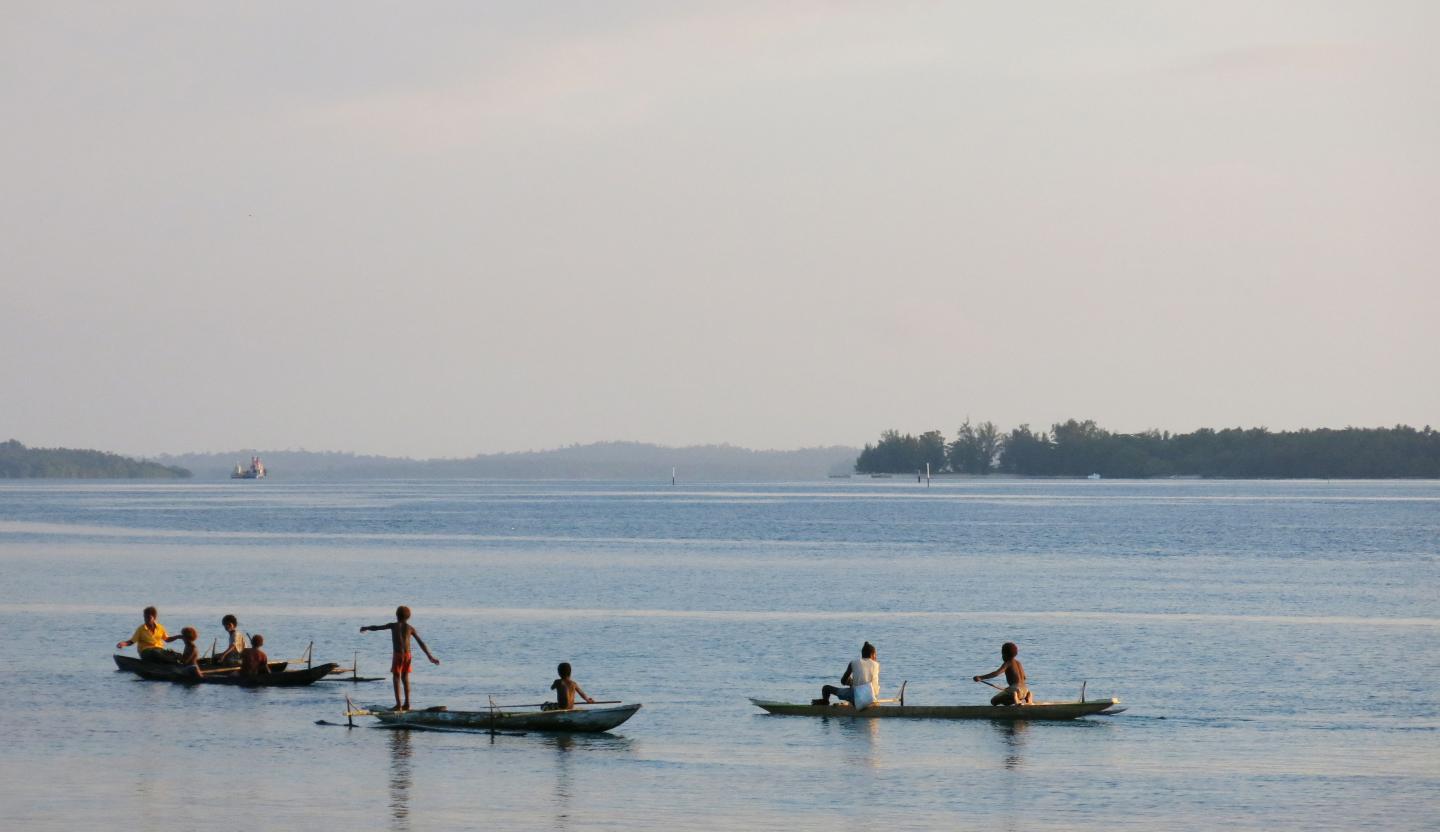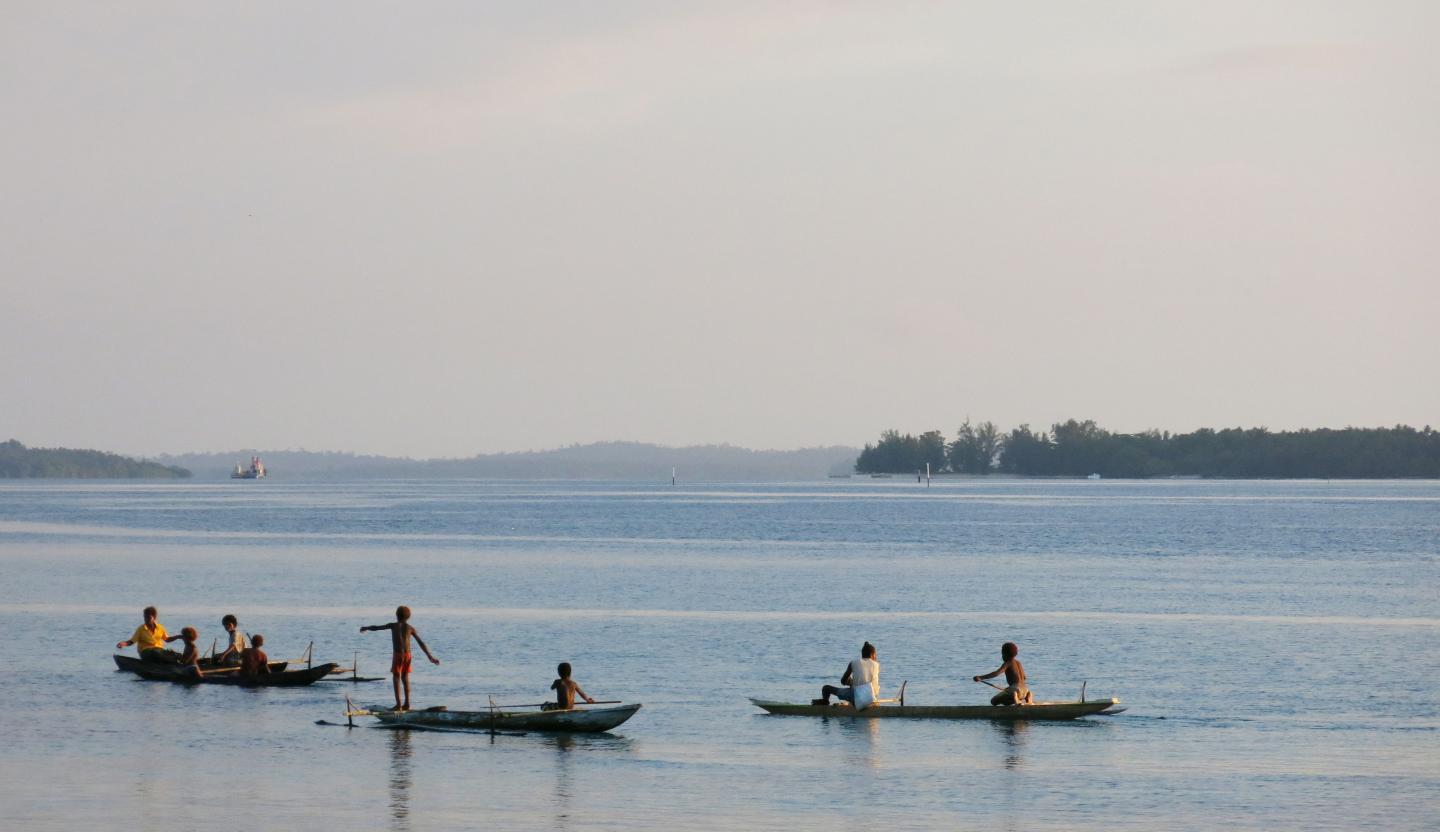
Credit: Colette Wabnitz
Coastal Indigenous people eat on average 15 times more seafood per person than non-Indigenous people in the same country, according to new research from the University of British Columbia. The findings highlight the need to consider food sovereignty and cultural identity as part of fisheries policy and Indigenous human rights.
In the first global-scale analysis of its kind, the study estimated that coastal Indigenous people consume 74 kilograms of seafood per capita, compared to the global average of 19 kilograms.
"This global database shows the scale and significance of seafood consumption by Indigenous people," said lead author Andrés Cisneros-Montemayor, program manager with the Nippon Foundation – UBC Nereus Program and research associate with the UBC Institute for the Oceans and Fisheries. "For Indigenous people who are not recognized at the state level, this type of resource helps quantify the resources they depend on."
The authors collected observed data and worked with local researchers to build a database of more than 1,900 communities who altogether consume 2.1 million metric tonnes of seafood per year. The communities studied include recognized Indigenous groups, self-identified minority groups, and small island developing states. These groups all share similar histories of marginalization and deep social and cultural connections to marine environments.
"Having access to a global database that quantifies fish consumption specifically by coastal Indigenous peoples is a critical contribution to Indigenous struggle on a number of fronts," said Sherry Pictou, former Chief of L's?tkuk (Bear River First Nation) and member of the World Forum of Fisher Peoples Coordinating Committee. "Most significantly, the generation of information about the consumption of fish as food shows that food security and sovereignty must also be part of the conversation about Indigenous issues."
The ocean provides a vital source of food and economic security for these communities, while also shaping their cultural heritage and spiritual values for millennia. This new research highlights the reliance of indigenous communities on marine resources and the increasing vulnerability of these people due to climate and ecosystem changes.
"For a lot of these communities, the practice of fishing forms a link to their culture that defines them as a people. It's not just about eating fish, it's about maintaining an identity as a distinct culture," said co-author Yoshitaka Ota, Nippon Foundation – UBC Nereus program director of policy and research associate at UBC's Institute for the Oceans and Fisheries. "Not only must fish and ecosystems be protected, but also those lives and cultures that depend on the ocean."
The study "A global estimate of seafood consumption by coastal Indigenous peoples" was published in PLOS ONE.
###
About the Nippon Foundation – UBC Nereus Program
The Nereus Program, a collaboration between the Nippon Foundation and the University of British Columbia Institute for the Oceans and Fisheries, has engaged in innovative, interdisciplinary ocean research since its inception in 2011. The program is currently a global partnership of six leading marine science institutes with the aim of undertaking research that advances our comprehensive understandings of the global ocean systems across the natural and social sciences, from oceanography and marine ecology to fisheries economics and impacts on coastal communities. Visit nereusprogram.org for more information.
Media Contact
Heather Amos
[email protected]
604-828-3867
@UBCnews
http://www.ubc.ca
############
Story Source: Materials provided by Scienmag





